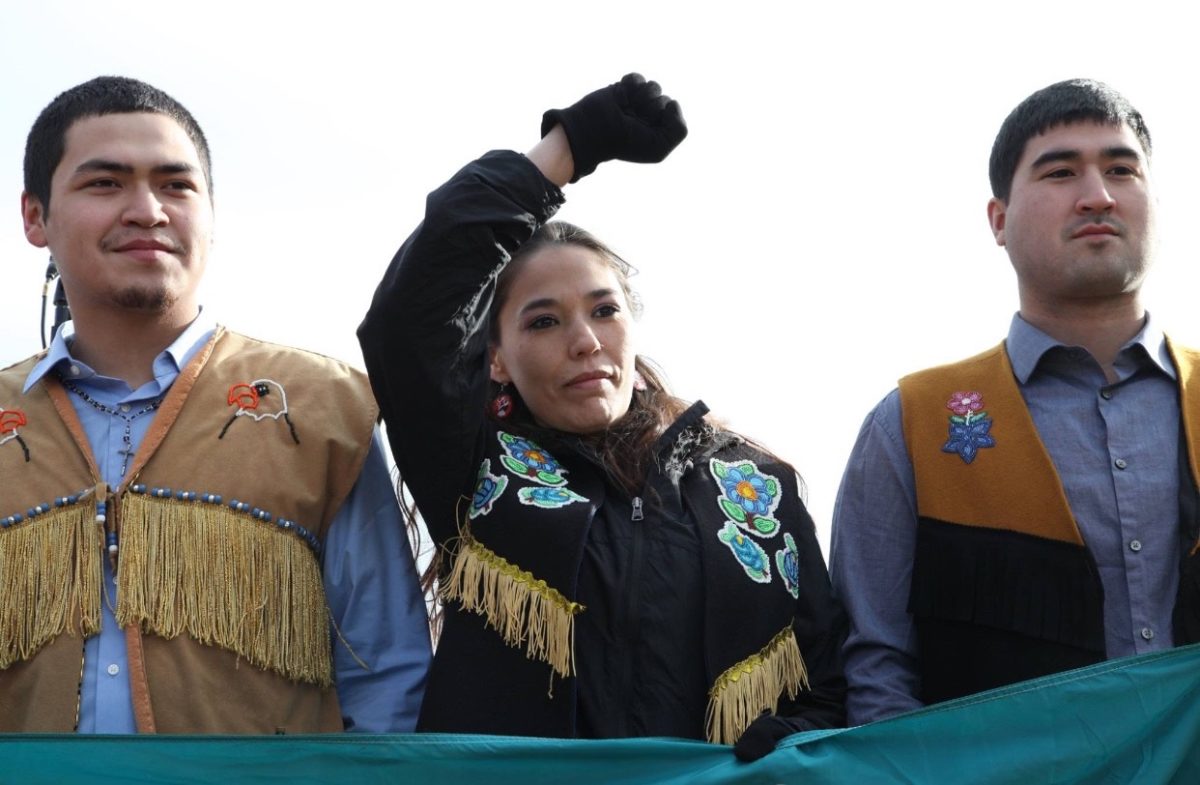The Arctic National Wildlife Refuge (ANWR) is a 19 million acre reserve in the northeastern corner of Alaska that’s renowned for its beauty and wildlife. ANWR also holds great cultural significance to the Native peoples of the region, including the Gwich’in Nation, who for generations have depended on the migratory caribou herd that births and calves its young in the coastal plain of the refuge. The Gwich’in have thus been some of the staunchest opponents of opening up ANWR to oil drilling.
But in 2017, over the objections of many Indigenous leaders and environmental groups, Congress passed legislation authorizing drilling in ANWR. In January 2021, just days before Joe Biden was to take office, the Trump administration held an auction for the right to drill in the refuge. Interest however was tepid: the sale raised less than $15 million. No oil major participated in the auction.

Of the reasons the oil auction was a bust, the campaign by the Gwich’in was arguably among the most compelling, helping broaden the issue into one of human rights, traditional Indigenous culture, and reverence for wildlife and the landscape. As the Executive Director of Gwich’in Steering Committee, a body established in 1988 in response to proposals to drill in ANWR, Bernadette Demientieff has had a leadership role in the campaign against drilling.
Demientieff is of the Gwichyaa Zhee Gwich’in, a Gwich’in tribe that lives in and around Fort Yukon, a town directly south of ANWR. The Gwichyaa Zhee Gwich’in are one among several tribes that comprise the roughly 9,000 Gwich’in people who live in communities spanning northern Alaska and Canada’s Northwest Territories and Yukon Territory.

The Gwich’in are known as “the caribou people” for the significance caribou play in their history, culture, and traditions. Caribou have provided the Gwich’in with food, shelter, clothes, and tools for thousands of years. Accordingly, the Gwich’in are keenly aware of the importance of the Alaskan coastal plain for the health of caribou populations: ANWR is the birthing grounds for the 200,000-plus Porcupine herd.
“The Gwich’in and the porcupine caribou herd have had a spiritual and cultural connection since time immemorial,” Demientieff told Mongabay. “We migrated alongside them for over 40,000 years. Our communities and the migration route are nearly identical. Our ancestors settled us so we can continue to live and thrive off the land and animals.”
“Our identity is non negotiable, we will never sell our culture and our traditional lifestyle for any amount of money.”

Stopping oil drilling in ANWR is one of only several things that Demientieff says needs to be done, including securing the area as a permanent, protected reserve and combating climate change, which is already having dramatic impacts on Gwich’in communities.
“We have seen changes not just within Gwich’in territory but within our coastal communities as well,” she said. “Many are falling into the ocean. We have hunters falling through ice when the waters and lakes should be solid.”
Demientieff spoke about these issues and more during a February 2021 interview.

